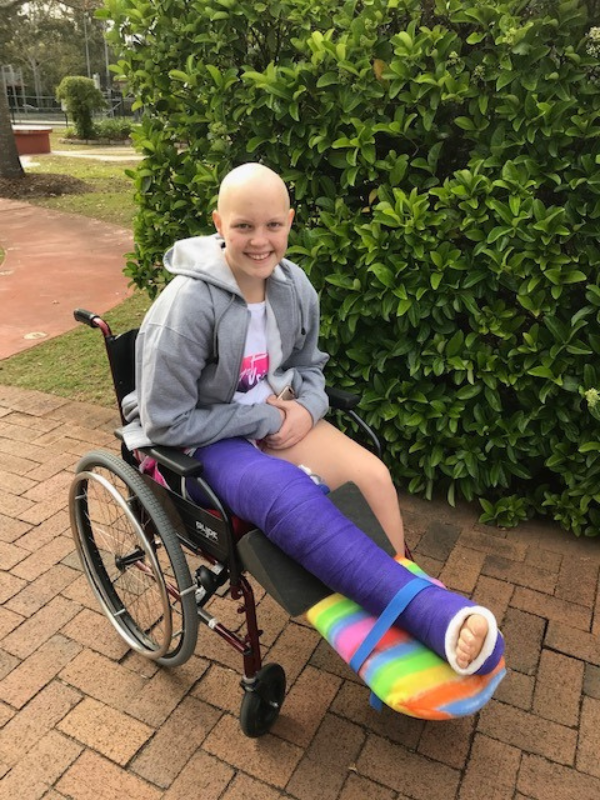-(2).png)
July is Sarcoma Awareness Month and The Kids’ Cancer Project is partnering with like-minded organisations to fund pioneering sarcoma research.
Sarcoma is a rare cancer of the bone and tissue. For over three decades research into this disease which primarily affects young people aged 15 to 24, remained at a stalemate.
However, The Kids’ Cancer Project, a charity that champions rare cancers, has funded groundbreaking Australian sarcoma research, leading to significant achievements in treating children and adolescents/young adults (AYA) in just a few short years.
 Molly, diagnosed on her 12th birthdayMolly Croft, 18, is a two-time sarcoma survivor who firmly believes it's this kind of bold research that will help other children like her. Diagnosed on her 12th birthday, Molly has remained positive despite the life-changing side-effects of the treatments that saved her life. But her desire to change kids’ cancer treatments for the better is relentless. She’s helped raise millions of dollars to support vital research into better and more effective treatments for other kids like her. Molly says:
Molly, diagnosed on her 12th birthdayMolly Croft, 18, is a two-time sarcoma survivor who firmly believes it's this kind of bold research that will help other children like her. Diagnosed on her 12th birthday, Molly has remained positive despite the life-changing side-effects of the treatments that saved her life. But her desire to change kids’ cancer treatments for the better is relentless. She’s helped raise millions of dollars to support vital research into better and more effective treatments for other kids like her. Molly says:
"The only way I could get through my treatment was to find a little ‘rainbow’ in every day. Something positive, something that I was grateful for. You’ll always find one if you look for it. But now, I know I have to help support research for other kids like me."
Our Partners
This funding has been possible thanks to our continued partnership with The Cooper Rice-Brading Foundation, The Tie Die Project, and the Australian and New Zealand Sarcoma Association (ANZSA). Additional funding has been welcomed from The Collier Charitable Foundation, the Children’s Cancer Research Unit, and Rainbows for Kate.
By working together, we are supporting brilliant sarcoma researchers across the country throughout their careers including the researchers behind these impressive projects:
The investment of The Kids' Cancer Project and its partners is significant in enabling a range of projects to be conducted at the same time, representing a diverse yet comprehensive undertaking across our charity’s four pillars of research excellence: Discover, Translate, Support, and Build.















